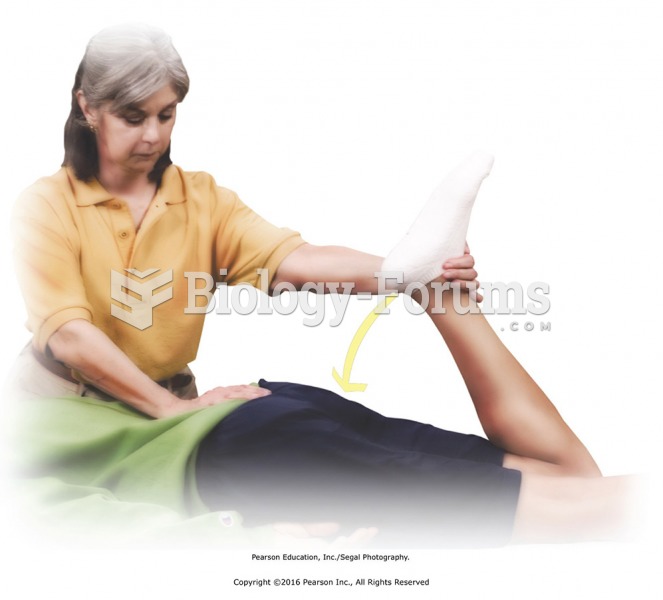|
|
|
The first documented use of surgical anesthesia in the United States was in Connecticut in 1844.
The shortest mature adult human of whom there is independent evidence was Gul Mohammed in India. In 1990, he was measured in New Delhi and stood 22.5 inches tall.
Though newer “smart” infusion pumps are increasingly becoming more sophisticated, they cannot prevent all programming and administration errors. Health care professionals that use smart infusion pumps must still practice the rights of medication administration and have other professionals double-check all high-risk infusions.
Alzheimer's disease affects only about 10% of people older than 65 years of age. Most forms of decreased mental function and dementia are caused by disuse (letting the mind get lazy).
Vaccines prevent between 2.5 and 4 million deaths every year.
 Stretch quadriceps muscles by bringing the heel of the foot to the buttocks. Hold the stretch for ...
Stretch quadriceps muscles by bringing the heel of the foot to the buttocks. Hold the stretch for ...
 Apply effleurage and petrissage on top arm. Stand in front of recipient and hold her hand with one ...
Apply effleurage and petrissage on top arm. Stand in front of recipient and hold her hand with one ...





